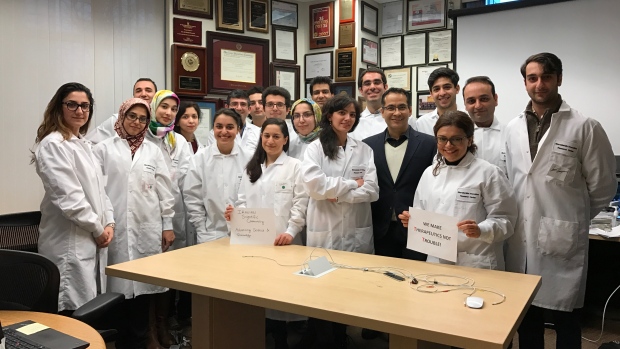In a bio-technology lab at Harvard University’s medical school an international group of highly skilled scientists are dreaming up new ways to engineer artificial human tissue with 3-D printers. Some of their brainpower these days, though, isn’t focused on the science but instead on U.S. president Donald Trump’s immigration ban and what it means to them and to their work. CBC reports.
“Half of the discussions in the lab these days are about this topic and not about science,” said Saghi Saghazadeh, a 30-year-old Iranian who has been living and studying in Boston for two years, on a single-entry J1 visa.
She’s one of 20 Iranians, with varying legal status, working in this one lab of 100 people at Harvard. It draws doctoral students and instructors from all over the world.
But their expertise doesn’t exempt them from the travel ban enacted more than a week ago.
Read also
Iran is top of the U.S. State Department’s list of state sponsors of terror and one of the seven countries whose citizens the U.S. has put under a 90-day immigration freeze in the name of — as the executive order is titled — “Protecting the Nation from Foreign Terrorist Entry Into the United States.”























































